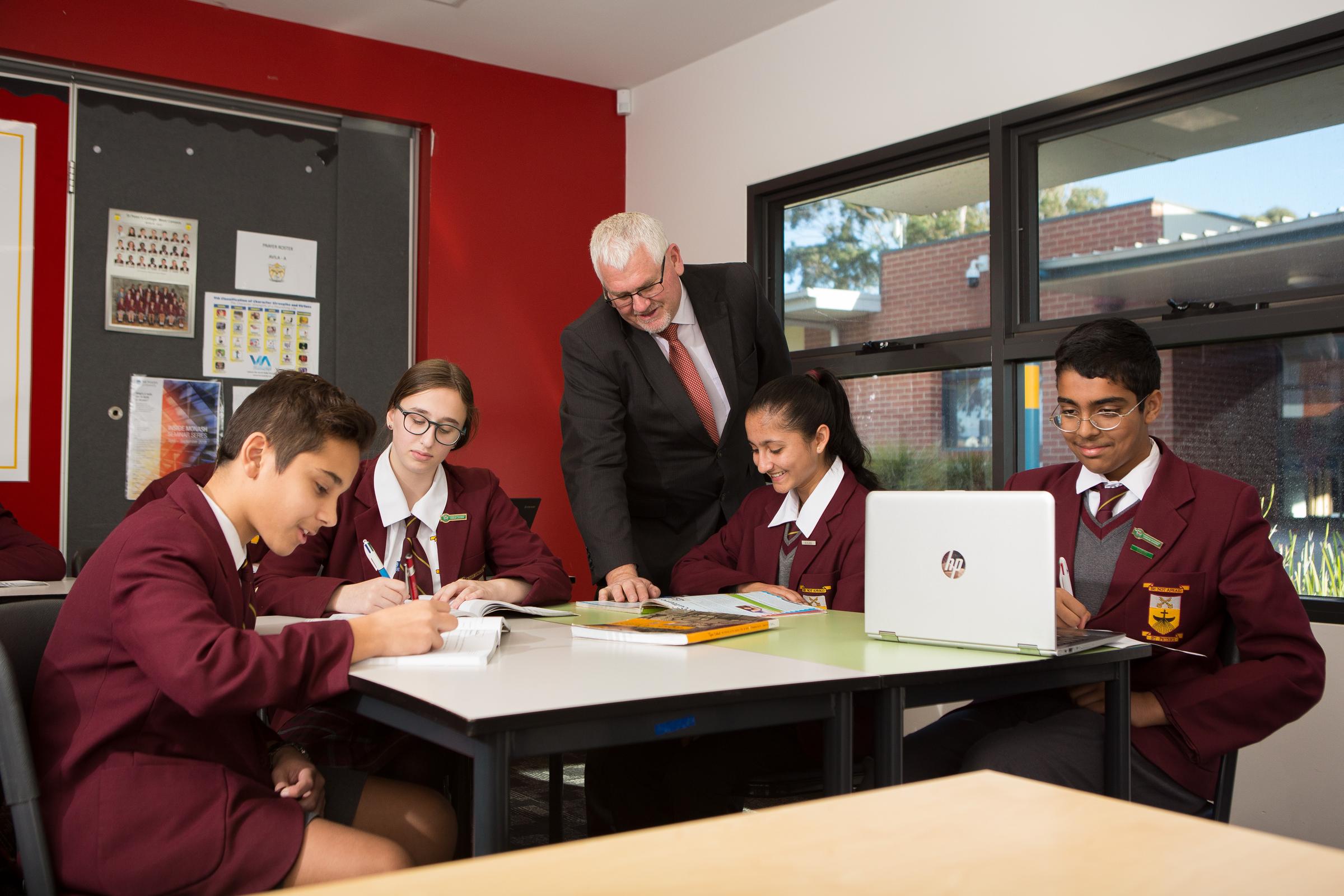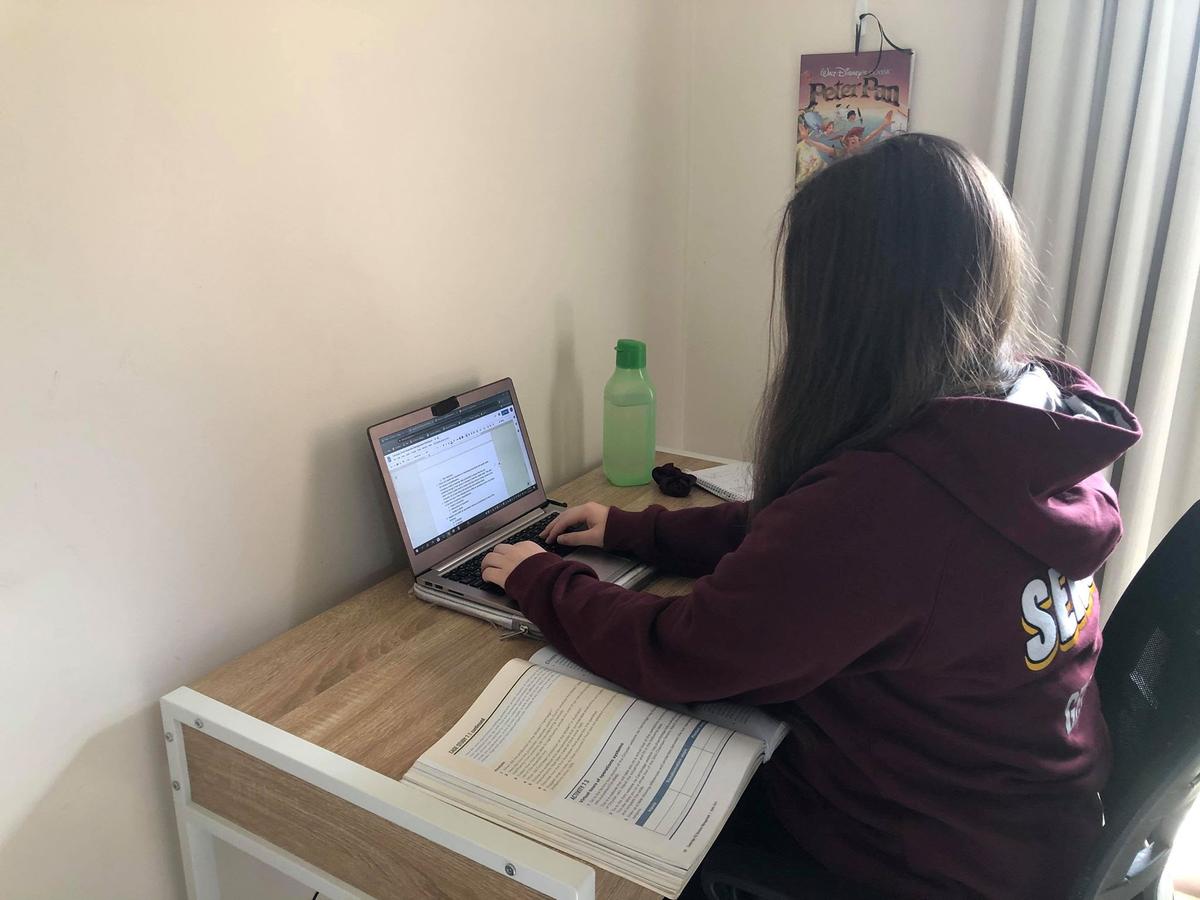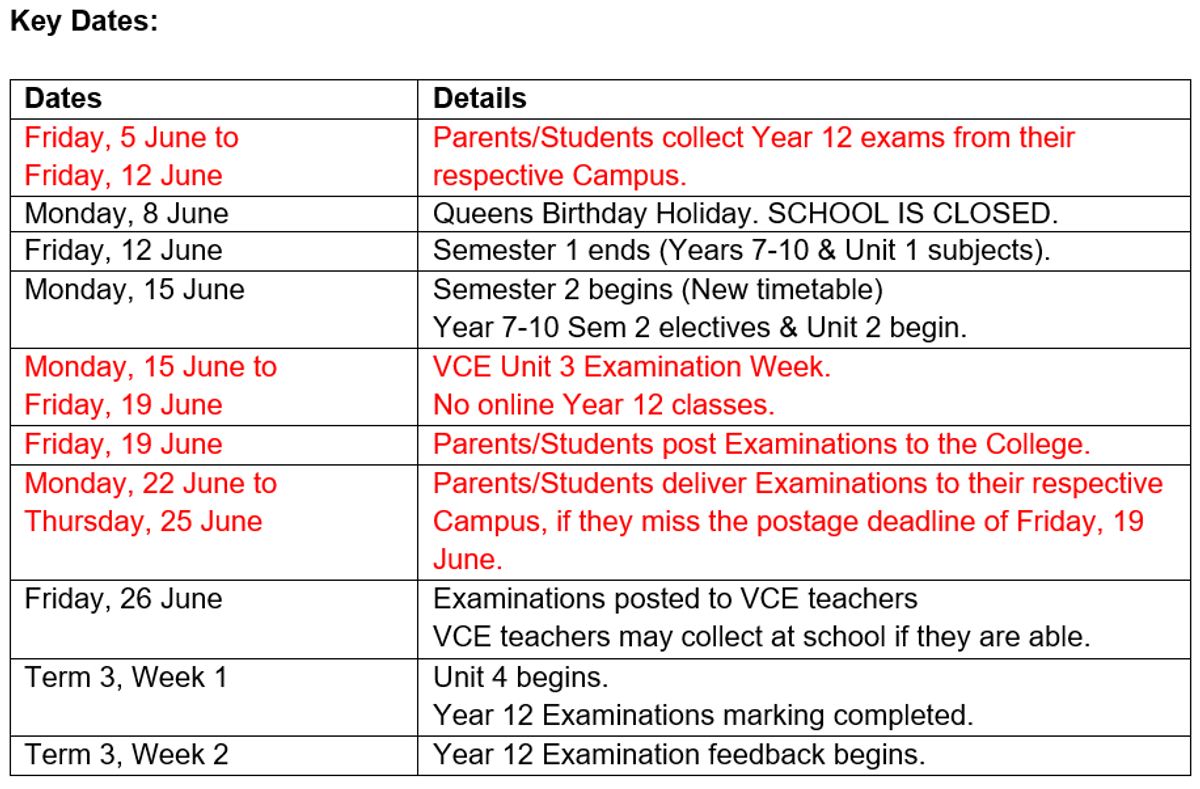Learning & Teaching News

Remote Learning – A Year 12 Parents Perspective after Week 2
Georgia Clover Remote Learning April 2020
“Be Not Afraid”. Three words that are of importance in our community are now being adopted worldwide. This sentiment has been embraced by all students in St. Peter’s College more than ever before.
As a parent to a Year 12 student, the beginning of Term 2 was stressful. However, teachers have been able to manage this uncertainty and have demonstrated their passion for their teaching.
They have been amazing in adapting to this unprecedented time. Their communication with their students and dedication to their student’s welfare has been amazing. I have always appreciated teachers and their commitment to our children and Remote Learning has only re-affirmed this.
Even though some of our teachers have their own children, that require supervision through their Remote Learning, their dedication to their St. Peter’s College students still remains a priority.
Although my daughter and her friends are missing the experiences that Year 12’s before her delighted in, they have shown that they are resilient. I overhear their online catch-ups discussing school work and uncertainty about tasks and the Year 12 community is banding together to help each other through this time. They still manage to socialise all be it online and provide support to one another.
No previous Year 12 cohort has been presented with this challenge but the students have taken it in their stride.
To the teachers, I thank you, and to the students, I encourage you to continue to “Be Not Afraid”.
- Sharron Clover, Year 12 Parent
Focus on Good Feelings
One of our staff members, Ms Annette Marschner, attended well known psychologist, Michael Carr-Gregg’s webinar this week. You may be interested in listening to the podcast when it is available next week. His clear and strong messages throughout the presentation were:
For students:
- make a list of short term and long-term goals to aid motivation.
- listen to what the mind is saying and focus on the things that can be controlled not what cannot. For example, with COVID-19, focus on keeping social distance, give yourself a break from news about COVID-19, and find fun things to do at home.
- stay active and get enough sleep to release those endorphins, serotonin and dopamine that prompt happy feelings in the body.
- to reduce stress and anxiety, turn off the chatter in the mind by doing yoga, exercise, meditations, mindfulness exercises, chat with friends, do something with the family, learn something new, or make a playlist on Spotify based on the mood at the time.
- seek accurate information from reliable sources.
For parents:
- Instil routine for your child(ren).
- Be the cheerleader. Be enthusiastic and positive about remote learning.
- Be a role model (including for sleep, exercise, diet).
- Access the numerous positive education resources - eg MoodGym website, Reach out Breath, Smiling Minds, 3 Good things, etc.
Senior Curriculum Leader – Clyde North
As Remote Learning and Teaching has begun, forefront in the minds of the VCE teachers are our students who are completing Unit 3/4 subjects this year. It is a very unusual year for you and many changes have come about because of it. I think it is timely for some advice for VCE students on how to get the most out of their studies so that they can achieve their best at the end of the year.
- Organise your time well: As we are in remote learning, it is difficult to define the boundaries between class work and study, as all the work you are doing is at home. If you have not yet drawn up a schedule for yourself, I recommend doing so. You should include the classes for the day and then what extra study you are going to do in the evening to prepare for SACs, mid-year exams and the end of year exams. Don’t forget to include breaks in your schedule for relaxing, time with your family and online catch-ups with your friends. These are all important parts of balancing your time.
- Prioritise the things that will make a difference: At the start of the year, I talked with the VCE students about required work and non-required work. Required work is the work set by your teacher or SACs and SAC preparation. Non-required work is the review of class notes, practicing the areas you have difficulty with, general revision of content from previous topics in class, extra practice, practice exams and many other ways of studying. Those people who are extremely successful on their VCE exams are often those who prioritise the non-required work. Those who prioritise the required work, find that all their time is spent making sure they are up-to-date with their classwork and assignments. When the non-required work is prioritised, then students still end up completing the required work but have found time to do more study than many of their peers, which gives them an advantage.
- Communicate with your teachers: Every teacher wants to be able to help their students achieve their best. However, in remote learning mode, we cannot have the incidental conversations with you that let us know how you are going. It is important to send emails when you have difficulties, ask questions in Zoom meetings and generally keep in touch with us about how you are going. That way, we can more effectively help you.
- Keep aware of advice from your teachers about any changes to courses. The VCE Study Designs have been altered for all Unit 4 subjects and so it is crucial that you follow instructions from your teachers rather than rely on what students say that they did in previous years. This year is different!
MID-YEAR EXAMS
This year, mid-year exams will only be occurring for VCE Unit 3 students. In these unusual times, we are asking for parents/carers to work with us in ensuring students have a meaningful examination experience. Each parent/student will need to come to the school from Friday, 5 June 2020 to Friday, 12 June 2020 inclusive to collect the student’s examination package. Please remember that the school is closed on Monday, 8 June 2020 for the Queens Birthday holiday. To maximise this examination experience, parents and students are asked to take careful note of what we are asking.
Parents:
To ensure they get the most out of the exam experience, please do the following:
- Ask your child to do their best by following the instructions. If done properly, these exams are designed to give students and parents a good idea of how the student is going in terms of their knowledge and understanding of the subject.
- Help prepare them for final exams by giving them the experience of doing the exam in exam-like conditions. In other words, they should be in a quiet room where they are not disturbed for the length of the exam.
- Supervise your child as they complete the exam so that the final teacher assessment gives both you and the student accurate feedback. It could be a good time for you to catch up on some reading while your child does their exam.
- Make sure they follow the exam rules. They should only use the resources that they have been told to use in the exam.
- Encourage them to finish the exam - this is an important point.
- If they run out of time, remind them to mark on the paper the point where they got to. Let them finish the exam anyway, but get them to do the remainder of the exam in a different colour pen (red).
- If they cannot do anymore of the exam without assistance, then let them get help from other sources (eg. a textbook or online). This way they can still respond to the question and get valuable feedback from the teacher on their answer.
- When your child has finished all the exams, then you should put them in the reply- paid envelope and post them by Friday, 19 June 2020.
- If you are unable to post your child’s examinations by the end of exam week, please drop them to Office Administration at your child’s campus in the following week, no later than Thursday, 25 June 2020. There will be a sealed box outside Office Administration at both campuses for the collection of examinations. This is important for examinations to then being posted on to teachers for them to mark them in a timely manner.
Students:
To ensure you get the most out of the exam experience, please do your best by following these instructions:
- Find someone to supervise you: Have a parent supervise as you complete the exam. This replicates the exam experience.
- Follow the exam rules: Only use the resources that you have been told to use in the exam. This will give you the best indication of your achievement level at this point.
- Read the instructions: As a Japanese teacher, nearly every year I receive an exam paper where the student has answered in English when it was supposed to be in Japanese and vice versa. Make sure you are doing what the task asks you to do.
- Finish the exam: If you run out of time, mark where you got to and finish the exam anyway. Just do the remainder of the exam in a different colour pen (red). This way your teacher will be able to mark the work that you did in the time frame for the exam result, but you can still get feedback on all the work you did and a realistic assessment about how you are going.
- If you cannot do any more of the exam, then go to another resource to try and answer the questions (eg. a textbook or online). This way, you will still learn how to do exam-like questions and get valuable feedback from the teacher on how to improve your answer.
Important VCE Dates
Here are some important dates for all parents to be aware, but the relevant information for parents of students doing exams have been highlighted in red:
Andrew Mitchell Mr David Hansen
Senior Curriculum Leader - Clyde North Campus Deputy Principal - Learning and Teaching


